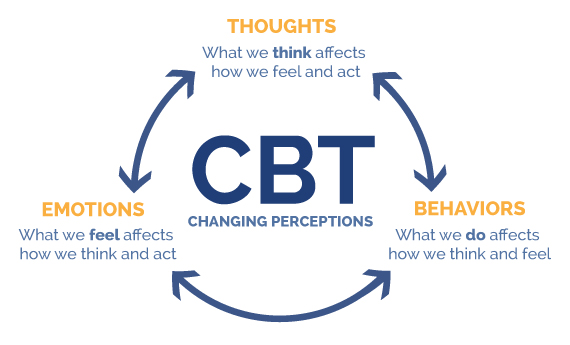Research-driven counselling for anxiety with caring guidance
Research-driven counselling for anxiety with caring guidance
Blog Article
Effective Strategies in Counselling for Anxiety Problem: A Course to Recuperation
When encountering stress and anxiety conditions, you may really feel unclear and overwhelmed of where to turn. Reliable counselling approaches can pave the means for recovery, providing you with the tools to browse your challenges. From cognitive-behavioral techniques to mindfulness practices, each method supplies special advantages. Recognizing exactly how these techniques work with each other can make a significant distinction in your trip. What are the crucial parts that will direct you towards lasting adjustment?
Comprehending Stress And Anxiety Conditions: An Extensive Overview
When you think of anxiety problems, it's important to recognize that they incorporate a variety of conditions defined by excessive anxiety or concern. These conditions can manifest in different ways, including generalised anxiety condition, panic condition, and social anxiousness condition. You might experience signs and symptoms like fast heart beat, sweating, or problem concentrating. It prevails to really feel overloaded, and these sensations can disrupt daily life.Understanding the source of anxiousness is important. They can come from genes, mind chemistry, or ecological variables. You may find that certain circumstances activate your anxiousness, making it vital to identify these triggers.
Cognitive Behavioral Therapy (CBT): Reshaping Thought Patterns

Mindfulness and Leisure Techniques: Growing Present-Moment Awareness
Mindfulness and leisure methods assist you cultivate present-moment recognition, enabling you to handle anxiety better. By focusing on the present moment, you can damage devoid of the cycle of concern and rumination that frequently gas stress and anxiety. Start by exercising deep breathing exercises. Breathe in slowly via your nose, hold for a moment, after that exhale via your mouth. This basic technique can relax your mind and body.Engage in mindfulness meditation by alloting a few mins daily to observe your thoughts without judgment. Take notice of your breath, experiences, and the sounds around you. You may additionally find value in modern muscular tissue leisure, where you tense and kick back each muscular tissue group, promoting psychological and physical ease.Incorporating these methods right into your day-to-day routine can develop a greater sense of control, decrease anxiety signs and symptoms, and improve your overall well-being. Keep in mind, consistency is essential to experiencing the advantages.
Direct Exposure Therapy: Encountering Concerns Progressively
Direct exposure therapy assists you face your concerns slowly, enabling you to develop self-confidence with time. By utilizing steady exposure strategies, you can slowly face what makes you anxious while developing effective coping systems. This process not only minimizes your concern but likewise empowers you to handle stress and anxiety better.
Gradual Direct Exposure Techniques
You can efficiently reduce stress and anxiety and gain back control over your life when you challenge your concerns gradually. Progressive exposure strategies include facing your fears detailed, beginning with less intimidating circumstances. You could begin by thinking of the feared situation, then proceed to seeing video clips or pictures associated with it. Eventually, you can exercise challenging the concern in reality, yet just when you really feel all set. This approach enables you to build self-confidence as you relocate with each phase. Remember to rate yourself; hurrying can boost anxiety. Celebrate small victories along the method, as each action onward empowers you. By constantly applying these strategies, you'll find that your fears begin to shed their grasp on your mind.
Structure Coping Mechanisms
Structure reliable coping mechanisms is important for taking care of anxiety, specifically as you face your concerns progressively with exposure treatment. Begin by recognizing your specific worries and damaging them down right into workable steps. This method, you can slowly confront each concern without coming to be click over here now overloaded. As an example, if you have a hard time with social circumstances, beginning by exercising small interactions, like welcoming a neighbor.Alongside steady exposure, include relaxation methods such as deep breathing or mindfulness to relax your mind before dealing with triggers. Keep a journal to track your progress and celebrate small victories. Surround on your own with encouraging good friends or a specialist that can assist you. Remember, it's a journey-- persistence and determination will reinforce your coping systems, leading to higher durability versus anxiety.
Supportive Counseling: Building Trust and Relationship
To properly support somebody with stress and anxiety, establishing trust fund and rapport is important from the extremely first session. You'll want to develop a secure area where they really feel comfortable expressing their ideas and feelings without judgment. Active listening is key; program real interest in what they share. Recognize their feelings and confirm their experiences. It is necessary to be understanding, as this helps construct a link and encourages openness.Be consistent in your technique and maintain discretion to additional strengthen that trust. Use open body language and make eye contact to communicate your attentiveness. Remember, your patience goes a lengthy way; building rapport requires time, and it's essential to respect their rate. By promoting this encouraging environment, you'll empower them to involve more completely in the restorative process, making it less complicated for them to explore their anxiousness and pursue recovery.
Team Therapy: Shared Experiences and Collective Recovery
Team therapy can be an effective tool for those managing anxiousness conditions, as it allows individuals to share their experiences and discover solace in the understanding of others. In this supportive setting, you can express your sensations without worry of judgment. Hearing others' stories can normalize your very own experiences, making you really feel less alone in your struggle.Participating in group therapy helps you develop dealing methods via shared understanding and understandings. As you pay attention to others, you may discover new methods to tackle your helpful hints anxiety that you had not taken into consideration before.Moreover, the cumulative healing that occurs in these sessions can promote a feeling of neighborhood, reminding you that you're not facing your obstacles alone.Building links with others who comprehend your battle can enhance your self-confidence and inspiration to challenge your anxiety. Team therapy creates a room where development and healing come to be a common trip, equipping you to take steps towards recuperation.
Incorporating Way Of Living Changes: Alternative Approaches to Anxiousness Management
While therapy provides vital support, integrating lifestyle adjustments can greatly enhance your capability to manage anxiousness. Begin by including routine physical task into your routine. Workout launches endorphins, which can elevate your state of mind and minimize stress and anxiety. Next off, pay focus to your diet plan. Eating a balanced diet abundant in fruits, veggies, and whole grains can favorably influence your mental well-being. Do not ignore rest-- purpose for 7-9 hours per evening, as high quality remainder is essential for emotional regulation.Mindfulness methods, such as reflection or yoga, can also assist you remain grounded and present. Think about reserving time every day to exercise these techniques. Lastly, limitation caffeine and alcohol usage, as they can worsen anxiousness symptoms. By making these all natural modifications, you develop a stronger structure for managing anxiety, matching the benefits obtained from therapy. Keep in mind, every tiny action trust your course to recovery.
Often Asked Inquiries
What Are the Typical Physical Signs And Symptoms of Anxiety Problems?
Common physical signs of anxiousness conditions consist of rapid heart rate, lack of breath, muscular tissue tension, sweating, and migraines. You could also experience exhaustion, dizziness, or intestinal Check Out Your URL concerns, which can even more complicate your every day life.
For How Long Does Counseling for Stress And Anxiety Typically Take?

Counseling for stress and anxiety generally takes a couple of weeks to a number of months, depending on your individual requirements and progress. counselling for anxiety. You'll discover that routine sessions aid you establish coping methods and get insights into your stress and anxiety
Can Anxiousness Problems Be Entirely Treated?

What Should I Do in an Anxiety attack?
During a panic attack, concentrate on your breathing. Inhale deeply via your nose, hold for a moment, after that exhale slowly - counselling for anxiety. Ground on your own by naming things around you, and remind yourself it will pass
Exist Medications for Anxiousness Conditions?
Yes, there are a number of medications for anxiousness conditions, including antidepressants and benzodiazepines. You must seek advice from a health care expert to discover the right therapy plan customized to your particular needs and scenarios for the very best outcomes. When you think about anxiousness disorders, it's essential to identify that they incorporate a variety of conditions defined by excessive worry or fear. These conditions can show up in various methods, consisting of generalised anxiety disorder, panic condition, and social anxiousness condition. Structure reliable coping mechanisms is important for handling anxiousness, specifically as you face your worries slowly with direct exposure treatment. Team therapy can be a powerful tool for those dealing with anxiety disorders, as it enables people to share their experiences and locate solace in the understanding of others. As you listen to others, you may uncover new ways to tackle your anxiety that you had not taken into consideration before.Moreover, the cumulative recovery that takes place in these sessions can cultivate a feeling of area, advising you that you're not encountering your difficulties alone.Building links with others who comprehend your struggle can increase your confidence and motivation to challenge your anxiousness.
Report this page